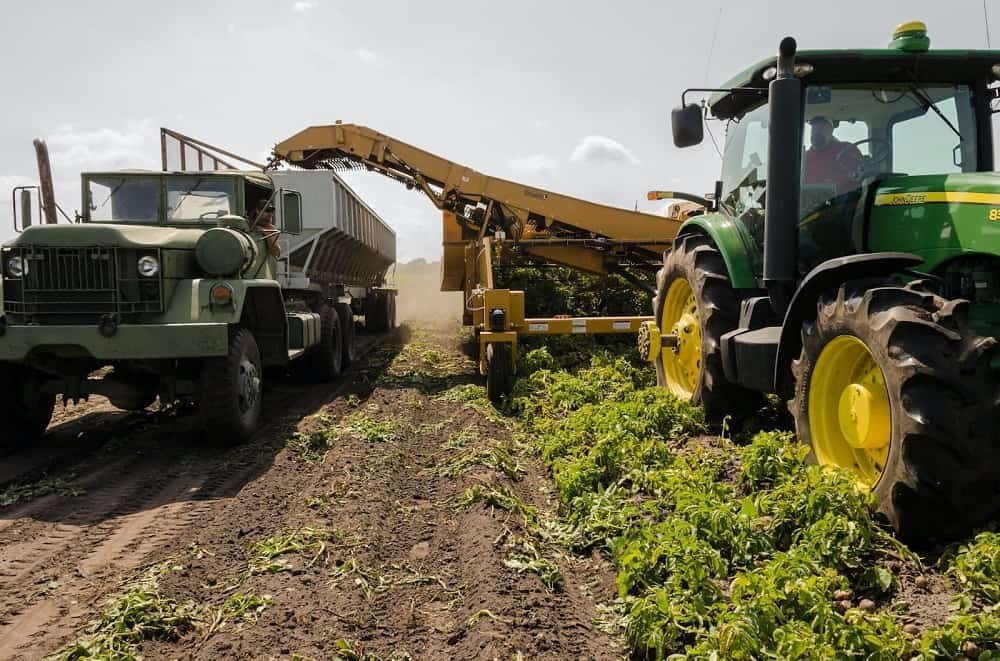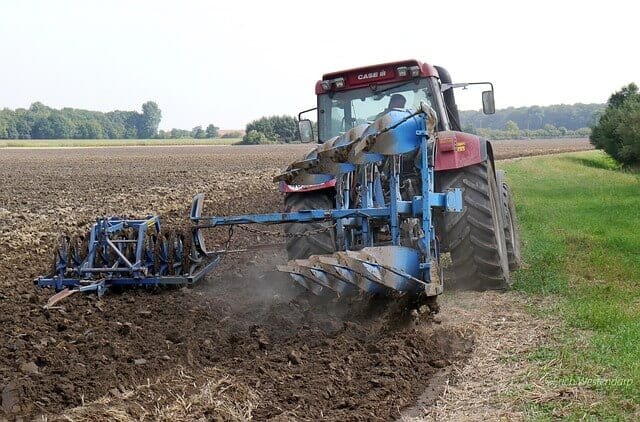Is Modern Agriculture Too Risky? Identifying Risks and Seeking Solutions

Modern technology presents many opportunities in various human sectors, offering more effective methods of doing things. However, they come with great risks and challenges, which is the case in the agricultural sector.
Many farmers today, especially in Africa, are riddled with the challenges of modern agriculture. This matter needs the urgent attention of many farmers as the agricultural industry is one of the drivers of Africa’s economy. For instance, in Nigeria, agriculture accounts for 23% of the country’s economy.
So, farmers must navigate a complex landscape of climate change threatening harvests, market volatility impacting prices, and rapid population growth straining resources, to mention a few. However, these risks also bring opportunities for those who evolve and adapt. In this article, we will discuss the risks facing modern farmers, especially in Africa, and how they can overcome these challenges.
Don’t Be a Poker Fish, Be the Shark
Let’s liken the agricultural sector to a poker game. In poker, weaker players are known as “fish” – they play loose, make mistakes, and ultimately lose money to better players or “sharks.” The sharks patiently capitalize on fish errors while mitigating their risks. This poker analogy holds in agriculture. Farmers who fail to manage risks end up “swimming with the fish” instead of “swimming with the sharks.” 2023 WSOP has several fun facts that you can read about here, to understand how big and diverse the ocean of poker can be, and sometimes how many similarities it may have with other industries.
In fact, poker tournaments exploded in popularity largely because they appeal to our human nature. We humans enjoy the thrill of navigating risks and making strategic decisions. Agriculture carries a similar attraction but with tremendously higher stakes.
Farmers face weather risks, pest and disease threats, price uncertainty, and other variables largely outside their control. Acting based on emotion rather than reason will sink a farmer just as quickly as a poker player. So, like a shark in a poker game, a smart farmer must master risk management, develop patience and discipline, and make informed calculated decisions.

Potential Solutions to the Challenges of Modern Agriculture
As we already established, farmers in Africa (and worldwide) face numerous challenges. Let’s discuss potential solutions to some of these problems below.
1. Climate Change Clouds the Forecast
Climate change impacts, like floods and droughts, pose immediate and long-term risks for African farmers. Climate experts predict declines in yields for key African crops and livestock in coming decades. This threat requires farming practices suited to future climate realities rather than old methods.
Strategies include switching to drought/heat tolerant seed varieties, improving irrigation access, adopting climate-smart soil management, and diversifying crops and income streams. Farmers’ groups and government organizations can set up knowledge-sharing networks to help train farmers on effective climate adaptation techniques. Crop insurance options and index-based weather risk financing tools can also help farmer climate resilience.
2. Buy Low, Sell High
Changes in market behaviors present daunting challenges for farmers aiming to profit from their harvests. Agricultural commodity prices fluctuate daily based on global supply and demand shifts. This may result in losses if a farmer mistimes the markets and sells their products when prices drop.
A potential solution to this problem is for farmers to become market-savvy. This way, they can track long-term price trends and cycles for key commodities while making their planting and marketing decisions. Some farmers explore collective marketing via co-ops to pool harvests, access better prices, and reduce individual risk.
3. Many Hands Make Less Work
Many African farmers run small-scale farms. In fact, 80% of food production in the continent comes from small farm sizes of around two hectares, making scaling up difficult. Small farms simply don’t have the economies of scale that help large operations cut costs and risks.
So, to solve this challenge, farmers need a larger scale of operations. Small-scale farmers can form their individual farms into larger cooperatives or “agricultural hubs,” allowing them to jointly use machinery, storage, and other needed infrastructures. Positioning smallholders within organized, efficient, and modernized systems is critical to managing risks.
4. Look Before You Leap, but Don’t Wait Too Long
Timing matters in agriculture. From planting decisions to pre-harvest marketing moves, a successful farmer knows that time shapes profitability. Launching any new enterprise on a farm is usually a leap of faith. However, hesitation and risk aversion also carry a cost because being successful requires a willingness to eventually take a calculated gamble.
Farmers need to seek third-party expertise to evaluate risks before making major changes. They must also prototype new ideas and start small to mitigate risks. As agriculture evolves, farmers must regularly step outside their comfort zones. With thoughtful moves rather than reckless ones, risk-taking will be rewarded.
Final Thoughts
Agriculture will always involve risks beyond one’s control. However, the nature of the risk has changed significantly due to technological advancements. Like poker players, today’s farmers must embrace calculated risks and develop the skills to thrive in an uncertain environment.
Farmers who adapt and develop their management skills will be ready to capitalize on the immense opportunities African agriculture offers. With a shark’s patience, discipline, and calculated boldness, farmers can thrive in even the most uncertain waters.





